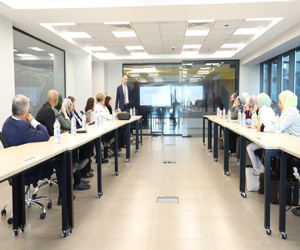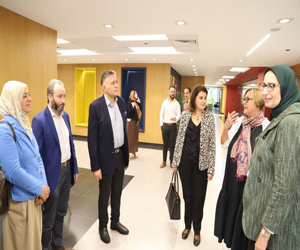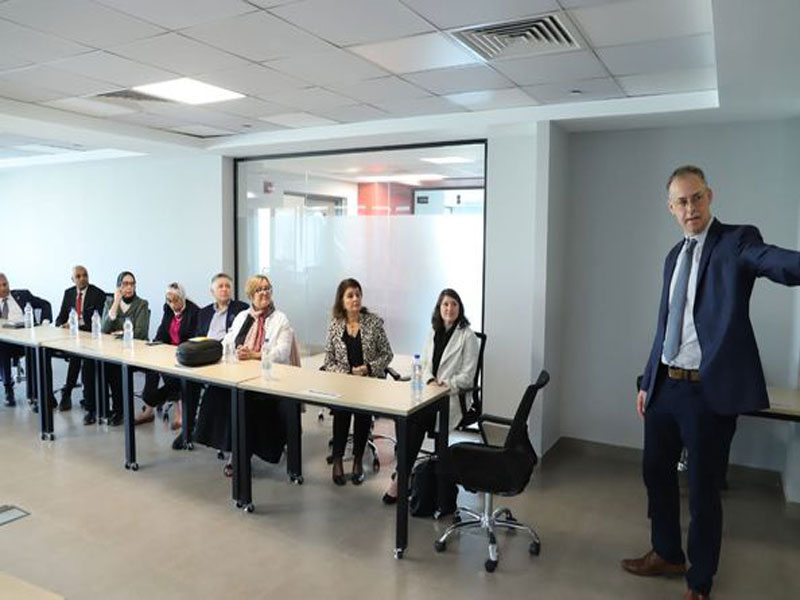Case western reserve university delegation hosted by Ain Shams University
Prof. Shahira Samir, Executive Director of the International Relations and Academic Cooperation Sector, on behalf of Prof. Mahmoud El-Meteini, President of Ain Shams University, Mr. Mark Alan Griswold, Erin Henninger, Elizabeth Stinnett Pullman received the Case western reserve university delegation at the headquarters of the Innovation and Entrepreneurship Center I HUB to discuss ways of cooperation between Ain Shams University and Case western reserve university in the field of "Mixed Reality", which is a technology that is the first of its kind and is the latest advancement in the educational use of 3D headphones. They also presented a demonstration of the use of HoloLens in teaching and in the field of archeology using advanced applications.
In the presence of Prof. Osama Mansour, Vice Dean of the Faculty of Medicine for Postgraduate Studies and Research, Prof. Hebat Allah Al-Saeed, Vice Dean for Education and Student Affairs, Prof. Hala Sweed, Vice Dean of the Faculty of Medicine for Community Service and Environmental Development, Prof. Mamdouh El-Damaty, Minister of Tourism and former Dean of the Faculty of Archeology, Prof. Gehan Tawfiq, Director of the Measurement and Evaluation Unit, Prof. Soha Ashry, Head of the Medical Education Department and coordinating Prof. Tamer Emara, Director of the International Cooperation Office at the Faculty of Medicine, Prof. Shereen Fawaz, International Cooperation Office, Dr. Weam Mahmoud, Deputy Director of the Center for Innovation and Entrepreneurship, and a number of faculty members in the Faculties of Medicine, Girls and Archeology.
 |
 |
 |
||
Dr. Mark Griswold, Professor of Radiology, Case Western Reserve's School of Medicine, "said that this mixed reality experience has global implications for how education is delivered and represents the first significant push to bring this type of education at scale to a global audience as part of Case Western Reserve's overall strategic plan."
Dr. Erin Henninger notes that this technology provides an opportunity to imagine what the future of education would look like with devices like HoloLens, and students use it to communicate and collaborate - whether with faculty in class or remotely.
Noting that COVID-19 was the catalyst for such ideas, she said, “It took a pandemic to realize that the future is now, and fortunately we had the infrastructure to quickly transform and successfully deploy our software to enable the largest Hololens shared group experiences in the world.”


.svg)




